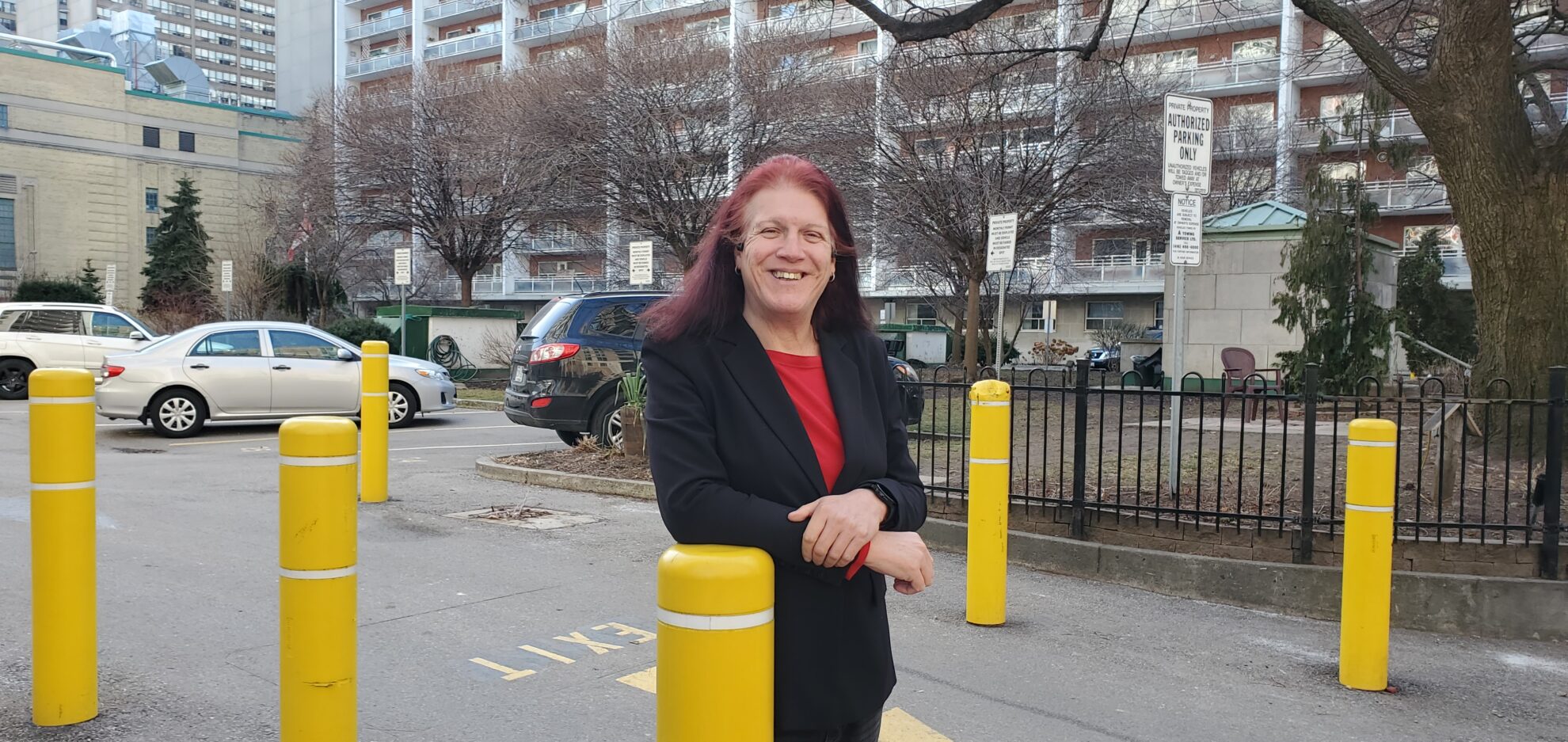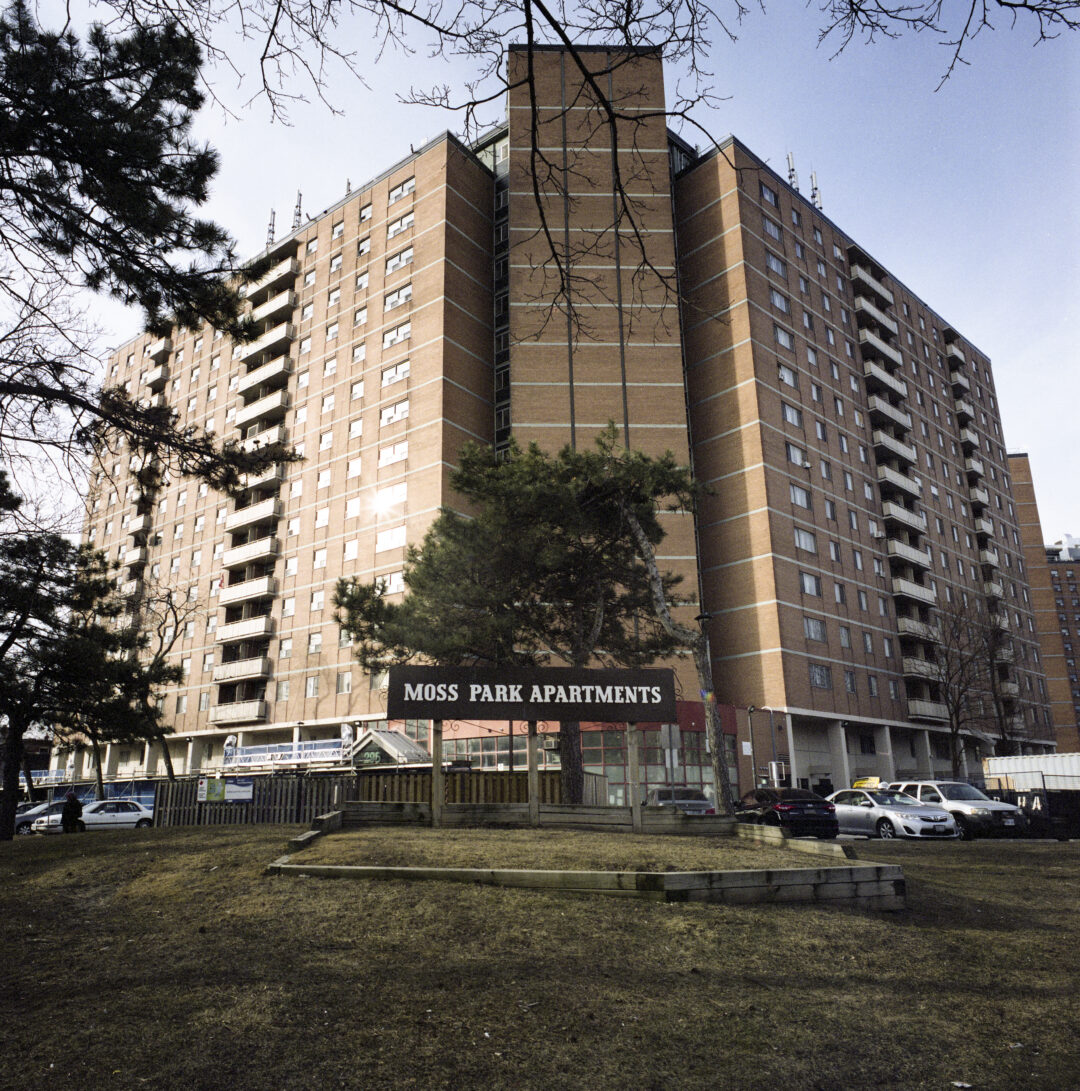By Nicki Ward, President, City Park Co-operative –
I’m honoured to serve as president of City Park Co-Operative Apartments in downtown Toronto. City Park, the largest co-op in Canada, is a proven (and scalable) model that can help solve Toronto’s housing crisis.
Encompassing a full city block just north of Maple Leaf Gardens, City Park’s five-acre site includes three midrise towers and about two acres of internal park space. It’s home to over a thousand residents, evenly split between deeply affordable market and subsidized rental apartments.
Working with the Co-operative Housing Federation of Toronto (CHFT) for the past 30 years, City Park is now mortgage-free, and self-finances Aging in Place, library services and community development programs. It has a 2,000-square-foot meeting space for art classes, exercise groups, seminars and more.
It’s inclusive and independent of provincial or municipal governments … so why aren’t we building a lot more housing co-ops?
Politics has a part to play. It’s hard to find a politician from any party who thinks co-ops are a bad idea, but there’s been little to no increase in co-op support in the past 30 years. Each of the major parties has had a chance to fix this.
So the answer has less to do with the party in power, and more to do with partisanship. The key word is “co-operative” – every small leap forward in co-op housing has happened when the government of the day got cross-party support.
Another reason for the lack of support for co-ops has been competitive lobbying. Co-ops are not-for-profit, so lack the resources to effectively lobby local, provincial and federal governments.
In the social housing arena, competition for resources is fierce. Co-ops are frequently outgunned by lobbyists for government-owned providers such as Toronto Community Housing (TCHC), the Shelter System, etc.
TCHC and Shelters are worthy endeavors that both need and deserve support. But in an ideal world not characterized by chronic underfunding and scarcity, co-ops would get a fairer share of resources. Sadly, in the current system, co-ops are not even at the table – let alone getting equitable access.
Two recent examples demonstrate this amply:
In December, the federal government set aside $471 million to “Build more homes faster.” How much of that is earmarked for co-ops?… $0
In February, the Ontario government gave the City of Toronto an additional $114 million to build more homes. How much of that is earmarked for co-ops?… $0
What could co-ops do if given the same levels of seed funding?
City Park’s 30-year history of success is a matter of public record. We cannot return a deficit, but sustainably house about 1,000 people for about $12 million a year.
The last two months of federal and provincial initiatives – totalling nearly $600 million – could seed co-op housing for 50,000 people. According to experts, 50,000 is about how many units needed to stabilize housing in Toronto.
At City Park, we believe that we have a successful formula for sustainable housing. We cordially invite Prime Minister Trudeau, Premier Ford and Mayor Chow to visit our backyard at any time.
Respectfully,
Nichola (Nicki) Ward
President, City Park Co-operative




